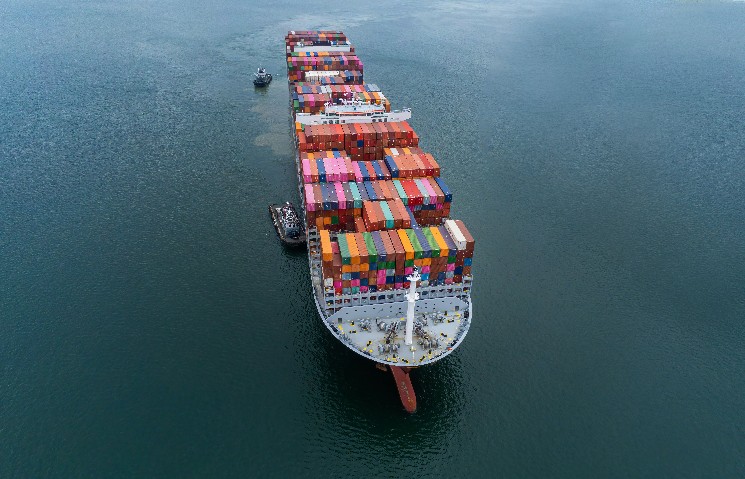How Some Bitcoin Mining Companies Are Trying to Bypass US Customs Enforcement

Some participants in the Bitcoin (BTC) mining market have a habit of systematically understating the value of mining equipment shipments to U.S. Customs and Border Protection (CBP) in order to reduce customs duties, multiple sources familiar with the practice told CoinDesk.
With the Donald Trump administration increasing tariffs on most goods coming from around the world, these efforts to avoid import duties are especially urgent.
“[Sector participants] typically look for ways to get around [tariffs] by putting a lower price on the packaging,” Jill Ford, founder of BitFord Digital, a company that specializes in supplying mining equipment, told CoinDesk. “It’s risky and I don’t recommend it, but that’s what they do to get them.”
Bitcoin mining has been booming in the U.S. in recent years, especially after China, once the hub of Bitcoin mining, banned the practice in 2021, causing the industry to relocate en masse to places like Texas. However, the $30 billion application-specific integrated circuit (ASIC) market is dominated by Bitmain and MicroBT, two Chinese firms that manufacture the majority of these Bitcoin mining machines in factories in Southeast Asia.
Companies like BitFord typically act as intermediaries between manufacturers and miners, although they can also purchase ASICs on the secondary market. The largest of these brokers offer all types of hardware and power infrastructure that miners might need.
The Trump administration’s new trade policy, unveiled on April 2, threatened to impose significant tariffs on Southeast Asian countries like Malaysia, Thailand, and Indonesia. A week later, the White House announced a 90-day moratorium on some of those tariffs to negotiate new trade deals. The resulting uncertainty has caused chaos among U.S. Bitcoin miners, who now face the possibility of paying hefty taxes on their ASIC supplies.
Yet even before the tariffs were proposed, mining companies routinely undervalued their shipments to U.S. customs, according to Ford and other sources.
“It’s a scam. It’s definitely illegal. But a lot of people have taken the risk and done it, and I don’t condone it,” Ford said. “If my client wants to do that, that’s their responsibility… We say, ‘How do you want to declare your package? What amount?’ And if they say, ‘Just declare it as $300,’ then that’s what we’ll do. But if it gets stuck at customs, that’s really their problem.”
Tightening control
It used to be relatively easy to undervalue ASIC shipments, Ford said, with CBP rarely conducting inspections. That began to change around November 2024 after Trump won the election, Ford said, while another source with experience in shipments, who spoke to CoinDesk anonymously, said a recent CBP investigation into whether imported mining rigs were violating sanctions related to the chips may have prompted the agency to take a deeper look at the mining sector as a whole.
“Before, if a mining rig was worth $3,000 or so, we’d list it at $300. It would just pass. Now, they seem to be looking online to see what it’s worth,” Ford said. “There’s really no way around it. I mean, you can understate it by 20% or 30%, but not like it used to be.”
The volume of the shipment matters. Importing one or two machines usually avoids inspection, Ford noted, but when miners import machines in bulk, CBP starts to take an interest. Hundreds of thousands of mining rigs are imported into the U.S. each year.
However, Ford said, some states appear to have stricter CBP measures than others because those controls have not been tightened uniformly across the country.
“I have a customer in Oregon who has no problem underdeclaring the value of the goods and shipping them right away, but I have another customer in Kentucky who has 100 cars stuck in customs that are worth $9,000 each,” Ford said.
“We ended up having to ship it back to Hong Kong in Kentucky, and now we’re like, ‘Well, where do we ship it to get it?’ And I was like, ‘We should probably just go through CBP in Oregon or California,’ because it’s just a nightmare trying to get it into Kentucky.”
The carrier used also affects imports. DHL is easier to reach in Kentucky than UPS, while UPS tends to be less stringent on the West Coast than on the East Coast, Ford said — and that's common knowledge among her suppliers.
A supply chain expert told CoinDesk that the implementation discrepancies are likely temporary. He said CBP may have decided to scrutinize mining rig imports more closely, but the new directive is simply being implemented at different speeds depending on the jurisdiction.
CBP did not respond to a request for comment.
In a subsequent email to CoinDesk, Ford appeared to soften her comments, shifting the blame to U.S.-based operations.
“Just to be clear, this was not a practice initiated by Maine
Source: cryptonews.net



